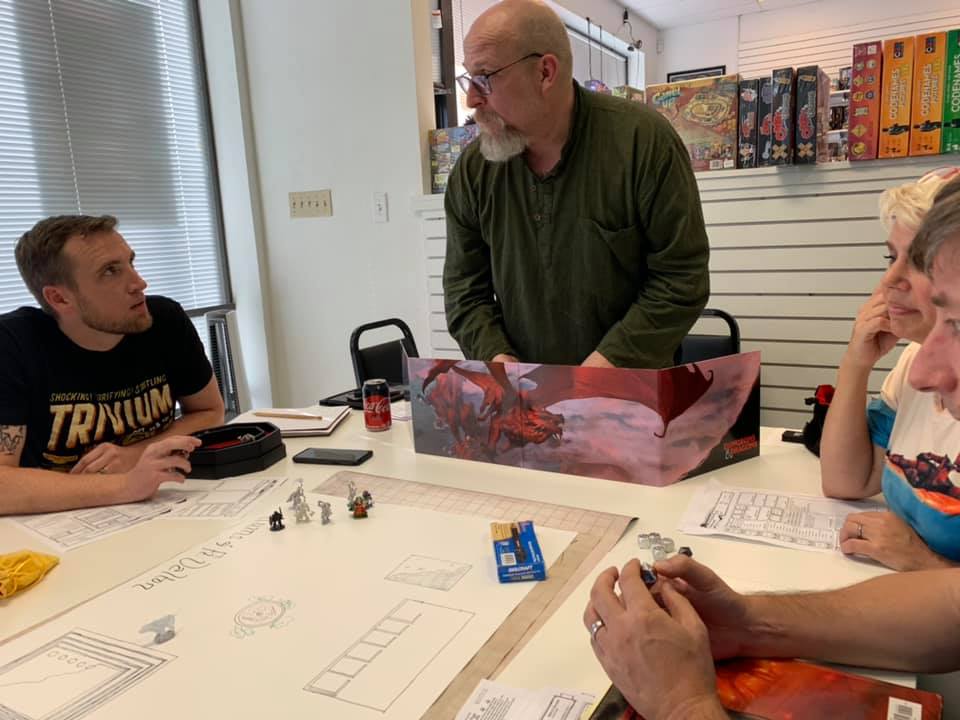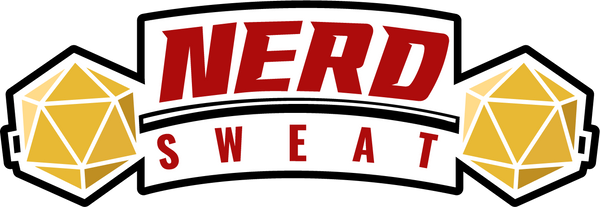
Debunking the Myths: Addressing Common Misconceptions About D&D
Share
Despite its surge in popularity, Dungeons & Dragons (D&D) is still shrouded in misconceptions that can keep new players from experiencing the game’s unique charm. Here, we’ll address some of the most common myths and provide resources to help you ease into this world of imagination and adventure.
Myth 1: "D&D is Only for Nerds or Geeks"
Reality: D&D has a place for everyone. Since the 1970s, D&D has evolved from a niche hobby to a pop culture phenomenon, drawing in celebrities, athletes, and creators across various fields. Stranger Things popularized the game even further, showing how universal its appeal can be. It’s not just for “nerds”—it’s a social game for anyone who enjoys storytelling, problem-solving, or a good laugh with friends.
Example: Critical Role, one of the most popular D&D streams, includes a cast of voice actors who come from diverse backgrounds. Even the late basketball legend Kobe Bryant once commented on how storytelling and character-building in D&D-like environments can enhance creativity.
Resource: Geek & Sundry’s D&D Section – A treasure trove for newcomers who want to explore the game in a relatable way, with videos, guides, and celebrity D&D moments.
Myth 2: "D&D is Too Complicated to Learn"
Reality: D&D’s complexity is flexible. Yes, there are rules, but they’re there to enhance, not hinder, your adventure. The game can be as simple or as detailed as you want it to be. If you’re just starting, you can focus on storytelling and character interaction without worrying about complex mechanics.
Example: The Lost Mine of Phandelver is a classic starter adventure that provides a structured, beginner-friendly experience, allowing players to gradually learn the game’s mechanics.
Resource: D&D Beyond’s Free Basic Rules – This resource offers a free version of the basic rules and an introduction to D&D essentials for those hesitant about the game’s complexity.
Myth 3: "D&D Requires a Huge Time Commitment"
Reality: D&D sessions can vary widely in length. While some groups play long, in-depth campaigns, others enjoy one-shot adventures that last just a few hours. You and your group can decide on a schedule that fits everyone’s availability, whether that’s weekly, monthly, or just for special occasions.
Example: Many people start with “one-shots,” or single-session games, to try out D&D without committing to a long-term campaign. These short adventures are perfect for testing the waters and getting a feel for the game without a huge time investment.
Resource: The One Shot Podcast – This podcast features short-form D&D adventures that showcase the versatility and flexibility of D&D gameplay.
Myth 4: "It’s Just a Game with Dice and Numbers"
Reality: While rolling dice adds suspense and chance, D&D is primarily a game of storytelling. You create characters with personalities, goals, and backstories, and work with friends to craft a collective narrative. Dice-rolling comes into play during key moments, like attempting heroic feats, but you don’t need to be a math whiz to enjoy it.
Example: The storytelling element of D&D is evident in streams like Critical Role, where character development and story take precedence over technical details. Their gameplay demonstrates that even with minimal knowledge of the game’s mechanics, you can still engage deeply with the story.
Resource: Critical Role YouTube Channel – A popular D&D show that reveals how character interactions and storytelling are central to the experience.
Myth 5: "You Need a Dungeon Master (DM) Who Knows Everything"
Reality: A DM doesn’t need to know every rule to run a fun game. D&D is about collaboration, and many beginner DMs use online tools or pre-made adventures to get started. The goal isn’t perfection—it’s creating an engaging experience.
Example: The Lost Mine of Phandelver is a well-loved introductory adventure that provides a structured guide for new DMs. Many people begin their DM journey with a module like this, leaning on its resources to guide the story.
Resource: Roll20 – This online platform has built-in tools for new DMs, including maps, dice rollers, and easy-to-follow tutorials, making it easier to try DMing without needing to know everything upfront.
Final Thoughts
D&D is more accessible than ever, thanks to online resources and beginner-friendly campaigns. Whether you’re a skeptic or a newbie, try dispelling these myths and giving it a shot! You might just find yourself on a thrilling new adventure with friends.
D&D is waiting—grab some friends and dive into a world limited only by your imagination!
